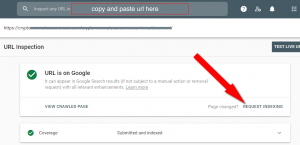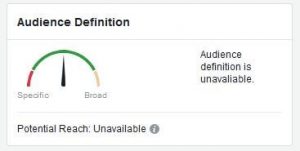In our expert roundup to ring out the old year and bring in the new, we talked to thought leaders in the field of content marketing about their predictions for this year. Now we’re going to spend a little time parsing all that good insight into actionable plans around content marketing for small businesses.
Bet on the Fundamentals: Websites and Email
As Nando Cabán-Méndez writes,
I think we’re getting really close to a time when smart business owners will realize all these tools at their disposal: mobile, websites, social media, email marketing, pay-per-click, apps, beacons, should be but an instrumental part of their overall marketing mix. Hopefully they’ll realize this all amounts to good ‘ol word-of-mouth, on steroids. When they start treating them as such, we’ll have a mature market, ready to reap the benefits. I’m betting on the fundamentals (websites, email), the technology-driven (geo-marketing, local SEO, semantic markup, beacons), and the business trends (paid advertising) to bring the value on the long term.
Like he says, they’re all just tools in the toolbox. The handyperson doesn’t use every tool every time for every job. That’s just silly. Especially because they’re billing by the hour and ain’t nobody got time for that.
Sure, you can never have too many tools–I suppose there are some people who say that and have a pegboard wall on three sides of their garage with hundreds of movers and shakers and twisters and cutters and whatever-ers.
At the same time, you don’t want to be that guy who only has a hammer. Because then everything’s gonna look like a nail. And, eventually, someone will take your hammer away.
Why are websites and email are your content fundamentals?
Because they’re your owned assets.
Your small business owns that content. No matter what decisions any of the social networks make, no matter how they change their algorithm to make themselves more money–you own the content on your site and your email. Further, you own your email list, or database. The info you collect therein is not pay-gated by Facebook or any other network’s ad engine.
So, if you’re reviewing your content marketing program this year–or starting fresh–start with the basics.
Sidebar: It’s a Program, Not a Campaign.
Content marketing, like any marketing, is not a one-and-done deal.
When have you seen any company run just one ad, even a Superbowl ad, and sit back and wait for orders to come a-rolling in? You haven’t.
It’s harder and harder to stay top of mind with anybody for anything. I mean, shoot, when was the last time you promised to pick up BBQ for your significant other who waited patiently at home, with “hanger” creeping in, and you returned empty-handed? Just me?
Reminders, people. We all need reminders.
Make Great Content, Especially for Your Fundamentals
Many of our experts agreed on this point, coming at it from different angles. Let’s review.
Quality Content, Fully Formed
Amanda MacArthur, CEO and Content Director at BuzzFarmers, writes,
It takes a lot more for content to take off these days than an interesting article. Even a really interesting article… In 2016, marketers will need to embrace the evolution of what’s deemed high-quality content by search engines and users alike. Content marketing teams can’t hinge their efforts on catchy headlines and good ledes anymore. They need graphic designers who create custom social graphics for each article, and videographers to capitalize on Facebook video and other visually-centric networks. Good SEO and 800 interesting words are simply the fertilizer.
Variety of Content Types
Jackie Dana, Copywriter, Editor, and Content Strategist for Watercolormoon, points out the value of the content and the content producer,
Every business with an online presence needs good content—blog posts, ebooks, white papers and web copy—but so few of them recognize the value of this content. This disconnect occurs despite ample data showing that original, well-written content boosts SEO, leads to more engagement, and helps build credibility and visibility for companies.
Targeted Content, Refined for the Reader’s Needs
As Aaron Strout, President of WCG World, says
We live in a world of unprecedented access to social and digital data. While some content marketers are either overwhelmed or choose to ignore this treasure trove of insights, the smart ones are tapping this data to better understand the who, what, where, and how of their target audiences… [W]hen good content is further refined to better address key stakeholder’s interests, the results are positive… as less targeted content gets lost in the mix.
Tanya Roberts, Word Wrangler at Bluefinch Creative puts that even more succinctly,
Like a fine gravy, entertaining, search-centric content will rise to the top.
So, What Are My Small Businesses Content Fundamentals?
And, how do we make ’em grrrrrreat?
Where’s Tony the Tiger when you need him, huh?
Your small business fundamentals are the same as they ever were:
- What you do
- To whom that’s helpful and valuable
- How and why that’s worth money changing hands
- Who can vouch for your work
- Who you are
- Why you do what you do
If you can weave all of that into a narrative, particularly the last point, then Bonus Star for your forehead, friend!
They say it’s all about story. Sell the sizzle and all that jazz.
I could talk in cliches and song titles all day, but let’s boil it down and talk turkey.
Remember the Old-School 5-Page Website?
Granted, websites are not five pages anymore and there’s all but an obligation to maintain a blog, but for illustration’s sake, let’s map your content fundamentals, listed above, to your major owned asset, that is your web domain. You can see where there’s overlap depending on your content architecture, but we’re keeping it simple, right?
- HOME PAGE & PORTFOLIO: What you do
- PORTFOLIO & CLIENTS: To whom that’s helpful and valuable
- HOME PAGE: How and why that’s worth money changing hands
- CLIENTS/TESTIMONIALS: Who can vouch for your work
- ABOUT US: Who you are
- ABOUT US: Why you do what you do
Check it out. Not all of that is “manufactured” content, if you will. Meaning, your Clients/Testimonials page should look nice and be easy to read, but it could just be a linked list of your clients’ names, titles, companies, and the praises which they sing of you. You don’t have to hire a titled Content Marketing Person to do that for you. If you know a little HTML, you can handle that.
In fact, you don’t have to hire a titled Content Marketing Person or Agency to do anything. All you need to have are a writer, a graphic designer, possibly an illustrator/or an infographic specialist.
Nice-to-haves include persons versed in CMS administration and management, web design and dev, SEO, PPC, content distribution networks, promotion techniques, ad buys, AdWords, and Facebook, Twitter, Instagram, Pinterest, and a community manager or three.
Let’s suppose that you’re a good writer. Your roommate’s a graphic designer and your neighbor’s kid is an illustrator. Cool.
Now you need to create great content for your Home Page.
You’ll need some copy–that’s the words. Tell the story of what you do, how you do it, and why it’s valuable to your clients.
Back up what you’re saying with some handsome images. Maybe photos, even stock photos, or maybe an infographic. Don’t forget the “design elements”–those flashes of color and whatnot that make everything easier to read and direct your eye.
Great content for your Portfolio page
Sure, you could just make a thumbnail grid of photos or pdfs for each of your past projects. (If you’re just getting started out, use homework assignments, volunteer work, entries into industry competitions, or even imagined work showing your process and what you would do for an actual client.)
And maybe you start out that way–with the thumbnail grid. As you have time and budget, you can begin building out your Content Library with Content Assets like:
- case studies
- white papers
- field reports
- before-and-after briefings
- slide decks from presentations you give on the local networking circuit
- and, yes, even blog posts about special projects and clients, with their consent
Great content for your About Us page
This is the part we all want to start with, right? OMG, lemme tell ya about my company and what we do and how we do it and why are you walking away?
Here’s where you get to go for it. Tell the story of how you got into what you’re into. Introduce who’s into it with you. Show the experience and background of your team. Show yourselves and your product/service in action, doing what you do.
In the beginning, this can be a single page with copy, photos, and a contact form.
Again, as you have time and budget, build out this one page into a section. Add to it from your growing Content Library, even repurposing some of your existing assets to “get in where they fit in.” Content items in this section might include:
- video interviews with team members
- recorded live video demos of your service in action
- commentary and links to previously recorded client webinars or classes
- commentary and links to your appearances in the local and national news media
- “behind-the-scenes” footage and commentary
- and, yes, more blog posts about a “day in the life of your company,” celebrating new hires and new contracts, commenting on industry happenings, cheering partners and vendors
We haven’t even talked about your other content fundamental: the email newsletter. But, I bet you get the gist by now.
Great content isn’t about you–it’s about your reader. What did they come to you looking for? Give them that. Make it easy on the eyes and quick on the uptake.
That’s easier said than done and that’s why our experts keep talking about the value of quality content.
One last word, unlike the featured image for this post, those cliched and colorful building blocks, you can reuse, repurpose, recycle, and remix content all you want. Even, and especially, your fundamental chunks of content.
It’s not like you’re taking away a keystone of Lego building. You’re just copying and pasting.
Save your drafts.
Featured Image Credit: Pixabay user, Public Domain
Business & Finance Articles on Business 2 Community(99)
Report Post






